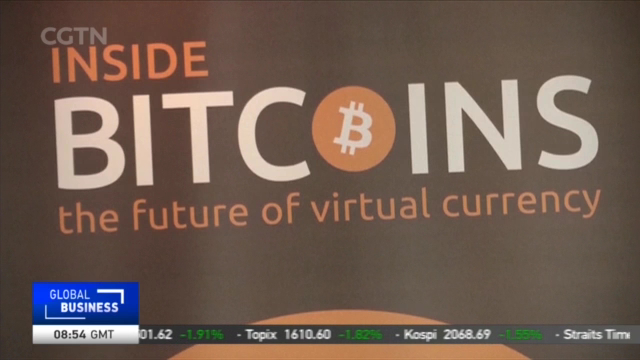
17:39, 06-Dec-2018
Japan Cryptocurrency: No more 'security by obscurity' after hacking thefts
Updated
17:02, 09-Dec-2018
03:01

The Japanese government is seeking to make Tokyo the global center for cryptocurrency. Japan's Financial Services Authority regulates virtual currency exchanges, and in April 2017, Bitcoin was recognized as legal tender in the country. But with several major hacking thefts of cryptocurrencies from Japanese exchanges, security concerns are rising. Steve Ross has more from Tokyo.
TIM ROMERO DISRUPTING JAPAN "Japan has gotten away with decades of security by obscurity. This is due both to the fact that a lot of the systems until very recently have been only made in Japan, and only used in Japan."
Tim Romero, founder and host of the innovation website and podcast 'Disrupting Japan' describes the factors that put Japan's cryptocurrency trading at risk.
TIM ROMERO DISRUPTING JAPAN "About ten years ago, as people started moving onto the web, there was a shift into kind of a standard way of doing things, interfacing with standard systems. And now, the whole world of hackers can attack at these systems in a way that they could not before."
Indeed, Japan's cryptocurrency hacking heists are some of the largest robberies in history, with two of the online capers netting amounts in the 400 to 500 MILLION dollar PLUS range. But Japan's Financial Services Agency has taken actions that – for now – have preserved traders' confidence.
TIM ROMERO DISRUPTING JAPAN "The FSA has shut down the offending exchanges, they've merged those exchanges with larger companies, and they've made their customers whole."
STEVE ROSS TOKYO "Kanda Myoujin Shrine, near Tokyo's electronics district of Akihabara, dates from the 13th century, and is now the place to pray for those facing 'electronic hardships'; for those buying cryptocurrency today, they must put their faith in the currencies' underlying technology."
Taizen OKUYAMA, President of Tokyo-based Money Partners Group, one of the largest foreign exchange brokerages in Japan, says that blockchain technology is sound, though regulations and enforcement are still developing.
TAIZEN OKUYAMA MONEY PARTNERS GROUP "I think the financial regulations in the current cryptocurrency system are somewhat insufficient, but that doesn't mean that the public blockchain itself is flawed or defective. We just need to create the financial systems and regulations for it."
And, now the National Police Agency is aggressively stepping up its budget, equipment, and software for monitoring and enforcement.
TAIZEN OKUYAMA MONEY PARTNERS GROUP "Cyber-crime is really under the enforcement of the police, not the FSA – we currently have a cyber-crime department in the Japanese police. And the police are working harder on cyber crimes."
OKUYAMA and Money Partners have enough confidence in 'crypto' security that they will continue trading. And while government-imposed security measures may create some hurdles or market interference, they can also provide a degree of safety.
Steve Ross, CGTN, Tokyo.

SITEMAP
Copyright © 2018 CGTN. Beijing ICP prepared NO.16065310-3
Copyright © 2018 CGTN. Beijing ICP prepared NO.16065310-3